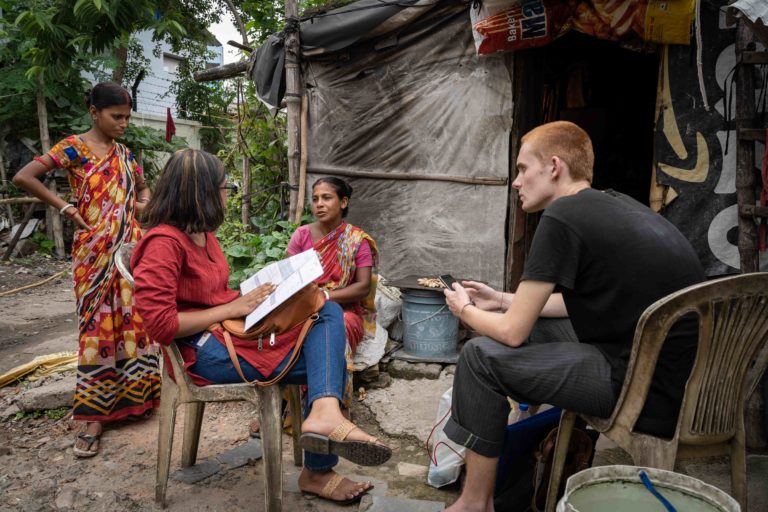Research History
Calcutta Rescue had always relied on the deep knowledge of Dr Jack and its senior managers in determining how best to support individuals and families in greatest need.
But in 2017 a trio of volunteers, UK-based doctors Amy Denh Lunn and Marcello Scopazzini, with Dutch researcher Esther Sulkers, started a data revolution at the charity when they pioneered several research projects aimed at informing clinical practices and operational priorities.
Understanding that empirical research is an invaluable tool when planning how best to meet the needs of the poor, CR’s CEO Jaydeep Chakaraborty initiated work on CR’s Multidimensional Poverty Survey.
Each of the slums where CR works is unique, and Jaydeep hoped that this keystone piece of research would allow CR to tailor its interventions to the needs of each community.
Jaydeep also believed that it would be a platform from which future research projects could spring.
The survey was designed by volunteer researchers from the UK, Maurice Lange and Eleo Tibbs. A pilot study was conducted in the spring of 2019, and the data collection proper was conducted in two stints – three months in the summer of 2019 led by Maurice, and two months at the end of the year by Dutch psychology students Ezra Spinner and Jasmijn Loos. You can read more about the project here.

The success of the Multidimensional Poverty Survey has given the charity the confidence to use empirical research whenever it is appropriate to guide investment in resources and services. It has already carried out a one-year cohort study investigating malnutrition in one very-deprived slum.
It has also led to the creation of the Calcutta Rescue Research Collaborative. This multi-national team of volunteers, which meets regularly via Zoom, is a hive of ideas aimed at generating relevant, well-researched, accountable research protocols buttressed by rigorous methodology and ethical guidance. It launched its first project last month examining the impact of the Covid crisis on the lives of the poor in Kolkata.
Key findings of Calcutta Rescue’s research are being shared with potential donors who increasingly want to fund evidence-based interventions.
The charity is sharing its research as widely as possible so that other organisations working to alleviate poverty can benefit from its experience and data. Maurice has recently advised researchers from Mumbai who are planning a study using a multidimensional poverty index in Tamil Nadu.